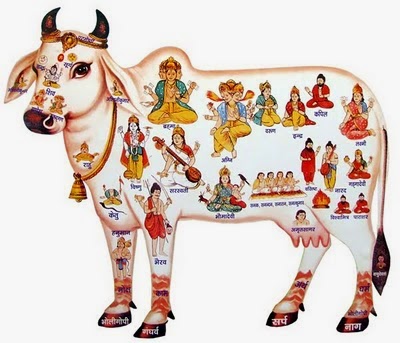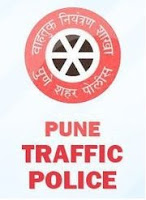What documents should
a driver carry when driving?
Driving
license / Registration certificate
Taxation
Certificate
Emission
Test Certificate
Insurance
Certificate
Fitness
Certificate & Permit (incase of transport vehicles)
Who is authorized to
collect the traffic fine on the spot?
Any
traffic branch officer of and above the rank of Head Constable of Police duly
authorized with a receipt book.
If I don't have money
to pay fine, what is the procedure?
As
per Sec.206 (2) of M.V.Act, 1988, if you decide not to pay spot fine, you will
be issued a notice with instructions to appear in the court within a week.
However, as security your DL in original will be kept in Police custody under
acknowledgement.
What is the rule regarding
seat belts? Is it binding using seat belts while driving in interior areas or
bylanes?
The
driver and the person seated in the front seat must wear the seat belts while
vehicle is in motion ( U/S 138 CMVR r/w 177 MVA).
What is the rule for
use of mobile phone?
As
per section 250 (A) MMVR, r/w 177 M.V.Act, no driver while driving or riding a
motor vehicle (including two wheelers) shall use a mobile phone.
Can other occupants
of the motor vehicle use the mobile phone?
Yes.
Other than driver, occupants of the motor vehicle can use mobile phone
If I am a doctor; can
I use my mobile phone in an emergency while driving?
No.
Exemption is not given to any one in the M.V Act or Rules regarding this. You
can stop the vehicle and then take the call.
What are the duties
of a driver when his vehicle is involved in an accident resulting in
death/bodily injury/damage to property?
The
duties are as under:
Arrange for medical help Inform the police
In case the vehicle is carrying dangerous goods, keep everyone away, avoid
smoking in the vicinity and take emergency action as displayed on the vehicle.
Under what conditions
is the towing of a vehicle allowed?
Vehicle
abandoned or left unattended or Parked in a parking restricted zone or Parked
in a way causing inconvenience to other road user can be towed away.
What is the
punishment for drunken driving/driving under the influence of any drug?
If
a driver is caught driving a vehicle with alcohol in his blood exceeding 30 mg
per 100 ml or he is under the influence of a drug to such an extent that he is
incapable of exercising proper control over the vehicle, the following will be
the punishments. First Offence: Imprisonment up to 6 months or fine up to Rs
2,000 or both Subsequent Offence: Imprisonment up to 2 years or fine up to Rs
3,000 or both
When can the
authorities detain a vehicle?
Authorities
can detain a vehicle in the following circumstances:
Vehicle being driven by an individual without valid driving license
Vehicle being driven without registration
Transport vehicle being driven without Permit
Vehicle being driven without payment of Tax
What are the
consequences for driving without a license?
You
will be fined Rs.300/-
Is wearing helmet
compulsory for Scooter and Motorcycle riders?
Yes.
Wearing helmet is compulsory. Violators will be charged U/sec.177 of
M.V.Act-1988 for which fine is Rs.100/-
What are consequences
of driving under the influence of liquor?
If
you are caught driving under the influence of liquor you will be issued a
police notice for for the appearance in the Court. There is no provision of
paying the fine on the spot. Moreover, you will not be allowed to continue to
driving unless you have a partner who is not under the the influence of liquor
and has a valid driving license.
or
You
will be advised to hire a cab leaving the vehicle in the police station under
acknowledgement till you appear in the court and pay the fine. Your driving
license will also be kept with the police till the disposal of the case.
You
are reminded that on repeat offence of driving under the influence of liquor,
there is a provision for enhanced penalty and imprisonment. If you commit a
fatal accident under the influence of liquor you could be booked under culpable
homicide not amounting to murder which is a non-bailable offence.
Will policemen stop
me for checking the documents?
All
the police officers have been clearly told not to stop the motorists merely for
checking the documents. Only when the motorist has committed some traffic
violations, he can be stopped, documents checked and penalized for
non-possession. There are strict instructions against police men stopping the vehicles
unless you commit some traffic violation.
Who can receive
payment of spot fine?
Above
the rank of Police Head Constable is authorized to receive payments against
violation and issue a L -temp receipt. No Police Constable can issue a L - temp
receipt and therefore receive a payment. They can however record the violations
on the basis of which violation will follow. This L - temp can be settled at concerned
traffic police Division or Prosecution section of the D.C.P.Traffic Office.
Incase a Constable threatens you with spot fine, insist on getting receipt and
the chances are that he will let you go because he is not authorized to issue a
receipt or receive money.
What is the spot fine
for drunken driving?
There
is no spot fine for drunken driving. In each of the drunken driving case,
police notice is issued asking the person to appear before the court. Only
court is empowered to impose the fine.
What happens if I
don’t appear in the court?
If
you fail to appear in court, warrant will be issued from the court. This may
lead to arrest and stiffer penalty.
What is the punishment
for drunken driving?
In
the first instance there can be penalty up to Rs.3000/- which may extend to
imprisonment in subsequent offence.
After being booked
for drunken driving can I continue to drive myself?
No.
you will have to arrange for an alternate driver who is not drunk or take a cab
leaving the vehicle in the police station which will be released after you have
settled the case in the court.
What about pollution
check?
It
is mandatory to carry emission certificate. However, police have been
instructed not to stop any motorists for merely checking emission certificate.
I crossed the stop
line seeing green signal. But traffic in front of me was not moving and I got
penalized. why?
Even
if signal is green you should not enter the junction unless the tail of the
traffic in front of you is moving. Otherwise you will create gridlock and block
cross traffic too.
I crossed stop line
before the signal turning red, while it was still yellow. But I could not clear
the junction due to congestion ahead. Why was I fined for signal jumping?
Yellow
signal is provided only for those vehicles which have already crossed stop line
to clear the junction. You are not expected to enter the junction when the
green light has already changed to yellow.
Why are junctions
painted cris-cross in the center?
Cris-Cross
marking indicates “no standing”. Unless one is sure of clearing the junction,
he should not enter the junction even if the signal light is green, because it
will block the cross traffic and lead to grid-lock.
I got fined for
parking violation. But board was at least 20 m away from where I parked?
It
is not possible to put one board for each vehicle. “No parking” is notified by
gazette notifications and then boards are erected. Each board indicates that
roughly 50 m each side of boards is no-parking area. That is why boards are put
100 m apart.
Why do traffic police
switch off the lights during peak hours?
Actually
it is not a good practice but is inevitable due to inadequate capacity of
junctions. There are the situation when road is not able to take the entire
volume of traffic and tail of traffic ahead does not get cleared even till next
green phase. Now if the lights are not switched off, vehicles will block the
junction and make it impossible for even cross traffic to move thus creating a
grid-lock. It is lose-lose situation for all. At this juncture policemen take
over the signal and regulate it according to clearance and relative volume.
However, this practice is largely reduced and will disappear soon due to
increased capacity of roads and junctions. Switching off also becomes
inevitable during acts of nature like water logging, cracks in road and
man-made situations like strikes, rasta-rokho and VIP movement, when one or
more roads become unavailable for traffic. In all such situations manual
operations are resorted to. This practice is, however not encouraged.
What action is taken
if a person refuses to pay the fine?
If
a violator refuses to pay a spot fine, he would be required to surrender his
original driving licence - for which the officer concerned would give an
acknowledgment. The case will then go to court, and the offender will have to
go by the decision taken by it. The fine he would have to pay there would be
much more than the usual one. As per Section 206 (2) of the Motor Vehicle Act -
1988, if you do not pay a spot fine, you will be issued a notice with
instructions to appear in court within a week. In the absence of an original
driving licence, the person will have to leave the vehicle with the police. In
case of a violation notice which comes from the court, the deadline is one
week. However, we have to wait for a month before filing the case in court. If
the motorist fails to appear in court, a warrant will be issued and he will
have to face arrest or stiffer penalties.





